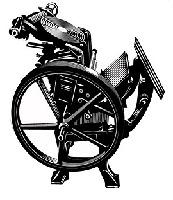- Posts: 14880
- Thank you received: 27
Democrats vote to raise ALL of our taxes......
- LadyJazzer
-

- Mountain Legend
-

Please Log in or Create an account to join the conversation.
- pineinthegrass
-

- Mountain Legend
-

- Posts: 2836
- Thank you received: 25
RenegadeCJ wrote:
pineinthegrass wrote:
My point was about the $700 billion deficit. Are you OK with that to keep tax cuts for the top 3%.
Of course Democrats have shown they weren't concerned about the deficit when they passed the stimulus. At least they are trying to cut it down by $700 billion now.
So why are you against cutting the deficit $700 billion? I thought that's what conservatives are all about!
Raising the tax rates won't raise that $700 billion. Not even close. By increasing tax rates you will change the way people act, and they won't do the economic activity to raise that $$.
Tax rates have no direct correlation to tax revenue to the treasury. Cutting taxes has raised additional revenue to the treasury many times in our past. The intention is to increase economic activity, not stifle it.
OK, the head of the CBO just reported on this. He sees a short term economy boost, but borrowing to pay for that $700 billion (also a CBO projection) less revenue will make things worse...
http://www.bloomberg.com/news/2010-09-28/budget-scorekeeper-says-tax-cut-extension-would-hurt-economy.html
A permanent extension of Bush-era tax cuts would provide a temporary boost to the U.S. economy and then become a drag on growth by pushing up interest rates, the head of the nonpartisan Congressional Budget Office said.
Douglas Elmendorf said extending breaks due to expire at year’s end would increase demand in the next few years by putting more money in consumers’ pockets.
Over the long term, he said, the tax cuts would hurt the economy because the government would have to borrow so much money to finance them that it would begin competing with private companies seeking loans. That, in turn, would drive up interest rates, Elmendorf said.
“The problem is that if those tax cuts are not accompanied by other changes in the government budget and are simply funded through borrowing,” the borrowing “crowds out other private investment in productive capital -- in the sorts of equipment, the computers, the machinery, the buildings -- that are the source of long-term economy growth,” Elmendorf told the Senate Budget Committee today.
Please Log in or Create an account to join the conversation.
- RenegadeCJ
-

- Mountain Legend
-

- Posts: 3724
- Thank you received: 130
Too bad future generations aren't here to see all the great things we are spending their $$ on!!
Please Log in or Create an account to join the conversation.
- HEARTLESS
-

- User is blocked
-

- Posts: 4316
- Thank you received: 30
The silent majority will be silent no more.
Please Log in or Create an account to join the conversation.
- LadyJazzer
-

- Mountain Legend
-

- Posts: 14880
- Thank you received: 27
Edited to add:
Obama defended his tax plan against McCain's charge that "Obama's secret that you don't know is that his tax increases will increase taxes on 50 percent of small business revenue." Obama responded that "only a few percent of small businesses make more than $250,000 a year. So, the vast majority of small businesses would get a tax cut under my plan." TRUE...AND TRUE: Only 4.3 percent of the total U.S. businesses are small businesses that make more than $250,000 a year, according to tax data. It's also possible that a majority of "small business revenue" comes from these firms. Obama is referring to the number of firms, McCain is referring to the concentration of revenue at the top end of the small business food chain. Both managed to make the facts work for their arguments.
http://abcnews.go.com/Politics/Vote2008 ... 914&page=2
Please Log in or Create an account to join the conversation.
- PrintSmith
-

- Mountain Legend
-

- Posts: 5668
- Thank you received: 40
What you are forgetting there Scruffy is that the Pelosi wanted to extend most, not all of the tax cuts. For the Republicans and many Democrats, they wanted all of the tax cuts extended and wouldn't go along with only extending only some of the cuts. Pelosi and her band of merry progressives wanted to pick the winners and losers of the tax cut extensions, which should be an affront to every citizen, not just the ones that Pelosi and her pied piper in the Oval Office decided they wished to punish with the federal tax code.Scruffy wrote: Where were the Repubs weeks and months ago when this should have come to the floor? Why are they all the sudden in heat for this bill NOW?
Politics. Pure and simple.
Please Log in or Create an account to join the conversation.
- HEARTLESS
-

- User is blocked
-

- Posts: 4316
- Thank you received: 30
The silent majority will be silent no more.
Please Log in or Create an account to join the conversation.
- Something the Dog Said
-

- Mountain Legend
-

- Posts: 3444
- Thank you received: 11
"Remember to always be yourself. Unless you can be batman. Then always be batman." Unknown
Please Log in or Create an account to join the conversation.
- LadyJazzer
-

- Mountain Legend
-

- Posts: 14880
- Thank you received: 27
HEARTLESS wrote: I'm looking for real insight here. Figure at least minimum wage, 2,080 hours for full time employees, leased space, utilities, start up costs, etc. Now consider that though mortgage rates are near all-time lows, not many can re-finance without at least a very good credit rating. Is a small business loan so much easier, or are we going to set up the next wave of bankruptcy?
And that has what to do with the fact that "Only 4.3 percent of the total U.S. businesses are small businesses that make more than $250,000 a year"?
http://www.census.gov/epcd/www/smallbus.html
out of ~25 Million small businesses
19.5 Million have no employees, and an additional 4.5 million have between 1 & 9 employees.
The non-employee businesses average $40,000 in receipts gross revenue
Please Log in or Create an account to join the conversation.
- HEARTLESS
-

- User is blocked
-

- Posts: 4316
- Thank you received: 30
The silent majority will be silent no more.
Please Log in or Create an account to join the conversation.






